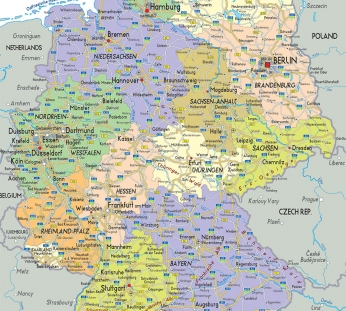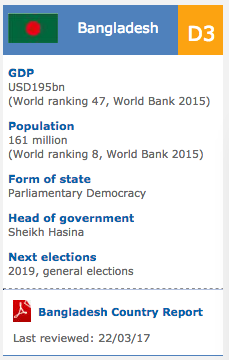
Germany
Capital: Berlin ; GDP growth (annual %) 2016 : 1.9%-
German Producer Price Inflation Slowest In 7 Months
German producer prices rose at the slowest pace so far this year in July, data from Destatis showed Friday.
Producer prices for industrial products advanced 2.3 % year-on-year in July, slightly weaker than the 2.4 % increase seen in June. This was the weakest since December, at the same time as prices gained 1 %. Economists had estimate 2.2 % annual increase.
More > -
German Economy Set To Continue Strong Momentum In Q3
The German economy is set to continue strong momentum in the current quarter, Bundesbank said in its monthly statement on Monday.
The central bank said GDP increase in the current year could even be somewhat stronger than expected in the June projection. The bank had before estimate 1.9 % increase for 2017.
More > -
Germany agrees measures to cut diesel pollution
German ministers, regional politicians and car executives agreed a package of measures on Wednesday aimed at cutting inner-city air pollution and averting bans on diesel cars.
More >
- Key Facts
-
Full name: Federal Republic of Germany
Population: 82.1 million (UN, 2011)
Area: 357,027 sq km (137,849 sq miles)
Major language: German
Major religion: Christianity
Life expectancy: 78 years (men), 83 years (women) (UN)
Monetary unit: 1 euro = 100 cents
Main exports: Motor vehicles, electrical machinery, metals
GNI per capita: US $43,110 (World Bank, 2010)
Internet domain: .de
International dialling code: +49
-

Sri Mulyani Indrawati
2017/07/08In an interview with us, Indonesian Finance Minister Sri Mulyani Indrawati emphasized that compared to Europe, Indonesia's economy is benefitting from a combination of a young population and effective fiscal policies.
-
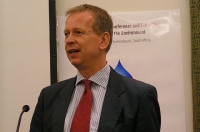
Germany considers Nigeria as a priority partner country in Africa
2016/07/25German Consul General in Lagos, Ingo Herbert is a distinguished diplomat with vast experience in different roles. He has a pragmatic world view which seeks win-win situations in trade and diplomacy. Herbert was confirmed as Consul General in September 2015. Before his nomination, he had served Deputy Chief of Mission at the German Embassy in Pretoria and Tanzania. Previous assignments include Deputy Chief of Division at German Foreign Service, Ministry for Cultural Affairs in Berlin and Press Officer at German Embassy in Tel Aviv. MEET THE BOSS recently had the opportunity to sit down with the Consul General for an interview.
-

Climate change laws around the world
2017/05/14There has been a 20-fold increase in the number of global climate change laws since 1997, according to the most comprehensive database of relevant policy and legislation.
The database, produced by the Grantham Research Institute on Climate Change and the Environment and the Sabin Center on Climate Change Law, includes more than 1,200 relevant policies across 164 countries, which account for 95% of global greenhouse gas emissions.
-
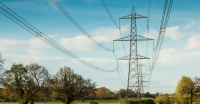
Brexit negotiations should treat energy as ‘special case’
2017/05/14There are strong practical reasons why the UK and EU should treat energy as a appropriate case during Brexit negotiations, argues a new statement.
The statement, jointly authored by Chatham Home, the University of Exeter and the UK Energy Research Centre (UKERC), says finding common ground on energy during the Brexit negotiations would benefit both the UK and remaining EU27, while compromise may be relatively easier to achieve than for other areas.
-

Germany should recall its time in Europe’s sick bay
2015/08/27Not all Germans believe in God,” said Jacques Delors, former European Commission president, “but they all believe in the Bundesbank.”
There is some truth to this, which is why it is not hard to understand the humiliation felt by the economically orthodox citizens of the bloc’s leading country, as common policies come under attack from national capitals and even from Europe’s own institutions. Talk in German media is of deception, abuse and exploitation, with Berlin losing each battle and its citizens paying a hefty price to keep the eurozone intact. Pressure is mounting at home to push back, to score points in the national interest. Berlin’s ability to resist will be crucial to Europe’s fate. -

With German prices falling at a faster pace than expected
2015/01/31Germany has become the new eurozone member national to succumb to deflation, with the initial fall in prices since autumn 2009, supporting the case for last week’s landmark quantitative easing package from the European Central Bank.
Germany’s Federal Statistics Office said yesterday it expected harmonised consumer prices, calculated to fit with the broader eurozone calculation, to decline 0.5 % in the year to January — a fall from a rise in costs of 0.1 % in the year to December.
-
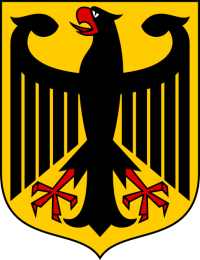
Outlook for 2014-18
2013/11/07The country (Germany) is situated in Central Europe, is bordering the Baltic Sea and the North Sea, between the Poland and Netherlands , south of Denmark.
The country has borders with Belgium for 167km, Switzerland for 334km, Austria for 784km, Czech Republic for 646km, Denmark for 68km, France for 451km, Luxembourg for 138km, Netherlands for 577km and Poland for 456km.
The Land in Germany is lowlands in north and with uplands in center and the Bavarian Alps in south.
German land covers an area of 35 7021 km².The climate is temperate and marine, cool and cloudy with wet winters and summers; and occasional a warm mountain (foehn) wind.
Political outlook
A grand coalition is the majority likely outcome, but negotiations will be tough given the risks-in terms of credibility and electoral prospects-to a prospective coalition partner of a dominant CDU/CSU led by a popular chancellor.
-
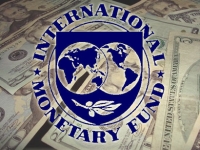
IMF Executive Board Concludes 2013 with Germany
2013/08/10Germany’s economic rebound of 2010-2011 gave way to weakening momentum during the course of 2012. While exports to non-European trading partners began to recover by mid-2012, in line with improved prospects in the United States and emerging economies, exports to the rest of the euro area continued to decline as the recession in the region continued. Consumption grew robustly as German unemployment remained near post-reunification lows and wages rose well above inflation. Business investment however continued to closely track the decline in exports to the euro area, leading to a contraction in activity in the last quarter of 2012, before stabilizing in the first quarter of this year.
- Germany News
-
- STOCK MARKET / FINANCE: German Producer Price Inflation Slowest In 7 Months
- ECONOMY: German Economy Set To Continue Strong Momentum In Q3
- ENVIRONMENT: Germany agrees measures to cut diesel pollution
- SOCIAL / CSR: German police test facial recognition cameras at Berlin station
- EVENT: Major Leap for Africa At G20 Summit
- EVENT: President Xi calls on G20 to champion open world economy, foster new growth drivers
- Trending Articles
-
- BOTSWANA: Bill Gates sees US likely to maintain aid levels for Africa
- NIGERIA: The city that won't stop growing, Lagos
- EUROPEAN UNION: UK seeks to 'align' with EU on data protection rules
- ANGOLA: Buhari Among African Presidents Who Lack Faith in Own Health Systems
- PAKISTAN: Qatar launches new direct sea route to Pakistan
- BOTSWANA: Africa’s economic growth in 2016 was driven by East Africa










